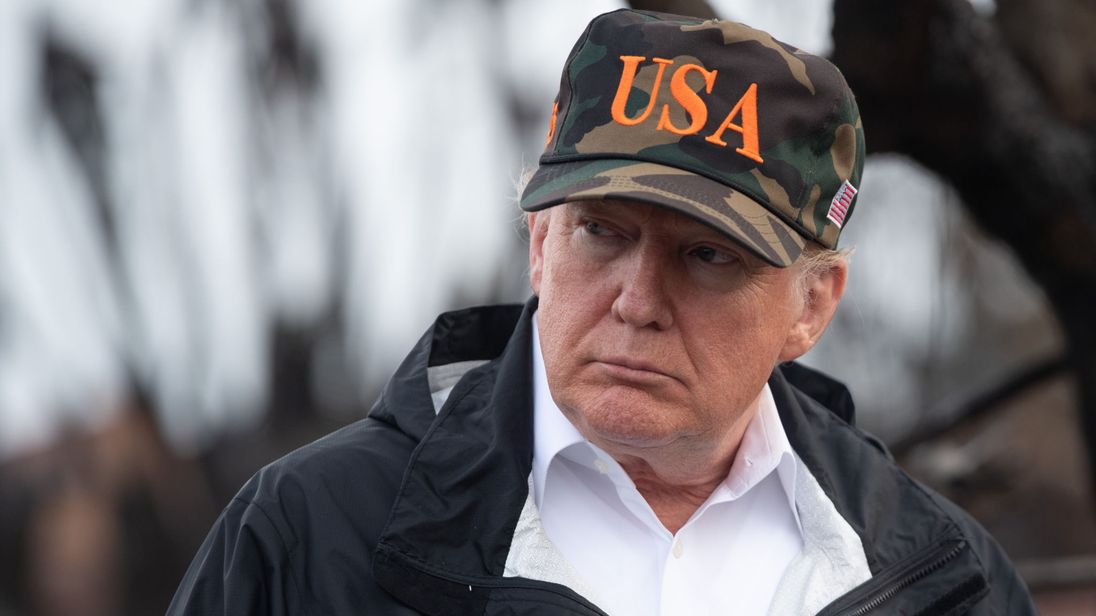Foreign diplomats are still feeling burned after assuming Donald Trump would lose in 2016 — and they don’t want to be fooled again.
So many of them are quietly preparing for and predicting a Trump victory in 2020. Some are even trying to game out who will be on the president’s team in a second term. The belief that Trump will win reelection — gleaned from conversations with around 20 foreign diplomats, international officials and analysts who deal with them — appears widespread.
“In 2016, nobody believed he was going to be elected. People don’t want to be stupid twice,” said Gérard Araud, a former French ambassador to the United States.
There’s no known scientific survey on the topic — few foreign officials would participate in one given diplomatic norms that preclude them from commenting on another country’s internal politics. But none who talked to POLITICO was willing to say Trump will lose. Instead, they pointed to three key advantages for Trump: He’s the incumbent, the U.S. economy is strong and the Democrats have no definitive front-runner to challenge him.
The expectation could affect how allies and adversaries approach negotiations with the U.S. While countries such as China and Iran have shown signs of trying to wait out Trump, several foreign officials said it would be ill-advised to count on a Trump defeat in 2020. Even if Trump loses, they argued, some of his policies and views may shape U.S. foreign policy for years to come.
“The way it looks to people is it’s going to be another four years,” said an Arab diplomat, who, like most people, requested anonymity to discuss the politically sensitive subject. “If he gets reelected, he’s bound by nothing, except Congress. And I don’t know how that’s going to play out.”
Embassies are already planning — as best they can — for the post-2020 world.
An Asian ambassador said that every embassy in Washington is working “on the basis that the president has more than an even chance at being reelected.” But he, like others, said the embassies have to prepare for either possibility.
The ambassador said some countries may choose not to launch new initiatives with the United States now because “the possibility of it coming to fruition aren’t high,” especially once campaign season kicks into high gear. “But if there’s something already in the process, you’re probably not going to stop,” he said.
Another foreign diplomat’s embassy is already trying to predict who will be on Trump’s team in a second term. The embassy also is trying to figure out who will be in each Democrat’s orbit, but with more than 20 candidates to follow, it’s hard, the diplomat said.
The diplomat noted that, on the one hand, Trump may lose interest in any sort of major policy moves in 2020 as the campaign heats up and takes up more of his time. Still, presidents often use foreign policy to make a mark when it’s clear they can’t get any legislation through Congress in an election year.
“But Trump is very hard to predict!” the foreign diplomat said. “We are always very surprised.”
On some subjects, it may not matter much whether the Republican president wins or loses, several diplomats said.
On U.S. military involvement overseas, for instance, some Democratic candidates for president are showing isolationist impulses like Trump. And Trump’s desire for more “fair” trade deals isn’t too different from the views of Democratic presidential candidates like Bernie Sanders or Elizabeth Warren.
In other words, no foreign government should bank on getting a better shake post-Trump.
“He’s not an isolated phenomenon,” a European diplomat said. “In his campaign and his presidency, he’s just responding to what the American public feels. The frustration he expresses, the grievances he responded to in his campaign are very often real.”
That hasn’t stopped a few countries from sending signals that they’d rather wait and see what happens.
China, for one, appears unlikely to strike a trade deal with the U.S. until after the 2020 election. Beijing has been increasingly reluctant to make concessions as Trump has slapped a steady stream of tariffs on the country’s exports.
Iran’s Islamist regime, meanwhile, appears unwilling to hold new nuclear negotiations with Trump, despite the president’s repeated imposition of sanctions that have battered the country’s economy.
Yet other governments believe they could benefit from a Trump reelection.
Hungary’s and Poland’s leaders have good ties with Trump, who critics say has been willing to look past anti-democratic developments in both countries. Israeli Prime Minister Benjamin Netanyahu has flaunted his relationship with Trump, whose favors have included recognizing Jerusalem as Israel’s capital. The U.S. president has also showered praise and arms sales on Saudi Arabia, despite bipartisan outcry over the country’s killing of journalist Jamal Khashoggi.
“The current administration is really good from the business perspective,” one European ambassador said. “For governments who want regulations changed, they might have a better chance now than with another administration.”




